Description
Course Name: Master Diploma in Education Techniques
Course Id: MDE/Q0001.
Education Qualification: Graduate.
Duration: 370 Hrs.
How You will Get Diploma Certificate:
Step 1- Select your Course for Certification.
Step 2- Click on Enroll Now.
Step 3- Proceed to Enroll Now.
Step 4- Fill Your Billing Details and Proceed to Pay.
Step 5- You Will be Redirected to Payment Gateway, Pay Course and Exam Fee by Following Options.
Card(Debit/Credit), Wallet, Paytm, Net banking, UPI and Google pay.
Step 6- After Payment You will receive Study Material on your email id.
Step 7- After Completion of Course Study give Online Examination.
Step 8- After Online Examination you will get Diploma Certificate soft copy(Scan Copy) and Hard Copy(Original With Seal and Sign).
Step 9- After Certification you will receive Prospect Job Opportunities as per your Interest Area.
Online Examination Detail:
- Duration- 120 minutes.
- No. of Questions- 60. (Multiple Choice Questions).
- 10 Questions from each module, each carry 10 marks.
- Maximum Marks- 600, Passing Marks- 40%.
- There is no negative marking in this module.
| How Students will be Graded: | ||
| S.No. | Marks | Grade |
| 1 | 91-100 | O (Outstanding) |
| 2 | 81-90 | A (Excellent) |
| 3 | 71-80 | A (Very Good) |
| 4 | 61-70 | B (Good) |
| 5 | 51-60 | C (Average) |
| 6 | 41-50 | P (Pass) |
| 7 | 0-40 | F (Fail) |
Benefits of Certification:
- Government Authorized Assessment Agency Certification.
- Certificate Valid for Lifetime.
- Lifetime Verification of Certificate.
- Free Job Assistance as per your Interest Area.
Syllabus
Master Diploma in Education Techniques
Childhood & Child Development
Fundamental principles of growth and development- social, motor, physical, mental, intellectual and emotional development and factors influencing growth and development, Personality development – Meaning of personality, Change in personality, Persistence in personality, some important personality determinants, Level of adjustment, Hazards in personality development, Promoting development of aesthetic sense, Character, Moral, Religious and Creativity, Care and way of treating abnormal, Delinquent and Gifted children, Psychological needs of preschool child, Play behavior in children, Common behavior problems, habits and habit formation, Concept of Childhood; Principles of Growth and Development; Socio-cultural context of Influencing Development, Childhood in Different Contexts: Childhood and Poverty, Child Labour, Child Abuses and Child Protection. Childhood Rearing Practices; Effects of Divorce, Single Parenthood Family; Migration of Families, Meaning, Nature, Characteristics and Types of Emotions; Emotional Development in different Socio-cultural Contexts; Understanding Children’s Emotions; Factors Affecting Emotional Development; Role of Parents and Teachers in Healthy Emotional Development.
Society, Education and Curriculum
Understand the nature and composition of contemporary Indian society, acquaint them with the constitutional framework, policies and implications for education, develop an understanding of the trends, issues and challenges facing Indian Society, understand the diversity in society (gender, caste, class, religion, language and region) and inclusive classroom, reflect on the relationship between education and society, Understanding Contemporary Indian Society: Nature and composition of Indian society : hierarchical (caste and class) multilingual, multireligious, multicultural, Gender discrimination, Social and economic inequalities, Constitution and Education: Guiding principles of Indian constitution: Preamble, Constitutional provisions regarding education, Decentralization, Panchayati Raj and education, Constitutional Amendment: Right to Education, Democratic Values and schools, Development of Education after Independence: University Education Commission (Radha Krishnan Commission 1948-49), Right to Education Act (RTE), 2009.
Understanding Language and Early Language Development
NATURE OF LANGUAGE: What is Language, Language Diversity and Multilingualism, Understanding How Language is acquired and developed, LANGUAGE DEVELOPMENT: Language Acquisition and Learning, Literacy and Language Learning, Language and Curriculum Transaction, Language Development in Classroom, Significance and acquisition of early literacy in the larger context of school curriculum, Ways of handling aspects of grammar not in isolation but by creatively integrating it with text, Function of Language and how children use them as a tool, Nature of language: Need of language for acquiring other knowledge, Language is perpetual, Rule governed system and language: Morphology of language, Relationship of language and society, Language Acquisition: Language Learning: formal learning in early school years including in pre-primary school, Children‟s home background and school experience, Language across the curriculum: Function of language, Language in Education and Curriculum.
Arts in Education
Understanding Arts and Art Education: Aesthetics in education: concept, importance, Artistic and Aesthetic sensibility, Meaning and Concept of Art Education; Visual and Performing Arts and their significance at primary level of school education, Planning and Organization of Art Experience: Planning and organisation of art experiences (Visual and Performing) – Activities and Time table (weekly, monthly and yearly calendar of activities), Evaluation in Art Education: Understanding and use of various tools and techniques of evaluation, such as; Observation Schedule, Projects, Portfolio, Checklist, Rating Scales, Anecdotal Records, Displays etc, Visual Arts and Crafts: Exploration and experimentation with different methods of Visual Arts; Drawing and Painting, Block Printing, Collage Making, Puppetry, Mask making, Clay Modeling, Paper Cutting and Folding etc. for skill development in different methods, Maintaining activity files.
School Culture, Leadership and Teacher Development
School Organization and Management: School Organization: Concept of Organization and Institution; School as a learning organization, School Management: Meaning, objectives, functions and principles of management; Role and functions of Principal as a School Manager, Leadership, Team Building, Motivation and Communication: Leadership: Concept; Leadership Styles: Autocratic, Democratic, Laissez Faire; Transformational Leadership and Instructional Leadership. Attributes of Effective Leader; Role of Principal and Teacher as Transformational and Instructional leaders in School, Communication: Meaning, Process, Types; Principles of Effective Classroom Communication; Barriers to Effective Communication, Team Building: Concept and Importance of Team; Team Building and Managing Team Performance in School, Essential Communication Skills for Principal, Teacher and Pupils, Discipline: Meaning and concept of Discipline; Causes of Indiscipline; Essentials for maintaining discipline; Managing Individual and Group Disciplinary Problems.
Yoga, Physical and Health Education
Health Education: Concept of Health Education with special reference to elementary school children, Food and Nutrition: Malnutrition, Nutritional deficiency, Importance of Balanced diet, Communicable and Non-communicable Diseases: Communicable Diseases: Meaning, basic knowledge about transmission, prevention and treatment of Communicable disease, Physical Education Programme: Physical Education: Concept, Importance at elementary level, Introduction to Yoga – Concept of yoga, Need and Importance, Basic asanas for relaxation , Ashtang yoga, Pranayama for growth and development, Importance and benefits of Yoga Education for school children, Games and Sports: Meaning, Difference between games and sports, Significance at elementary level, types, Contemporary Lifestyle and Stress Management: Stress related to- domestic matters, job, age, health, economic matters and other issues, Integration of Health and Physical Education with teaching of other subjects, Ways and means to cope up with Stress: Application of Life Skills.
School Internship and Practice Teaching
To observe children and the teaching learning process in a systematic manner, To learn to relate to and communicate with children, To develop a repertoire of resources which can be used by the intern later in her teaching – textbooks, children‟s literature, activities and games, excursions, To evaluate school textbooks and other resource material critically in the context of children‟s development and pedagogic approach used.


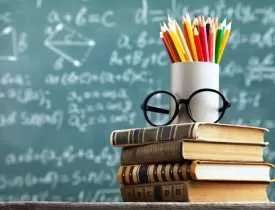
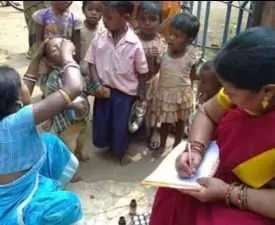
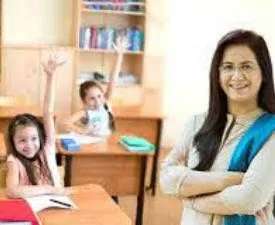
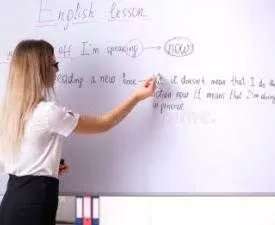
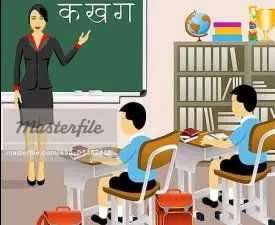
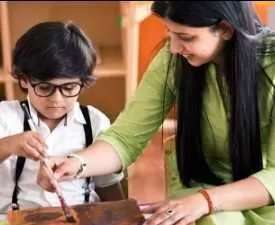
Reviews
There are no reviews yet.